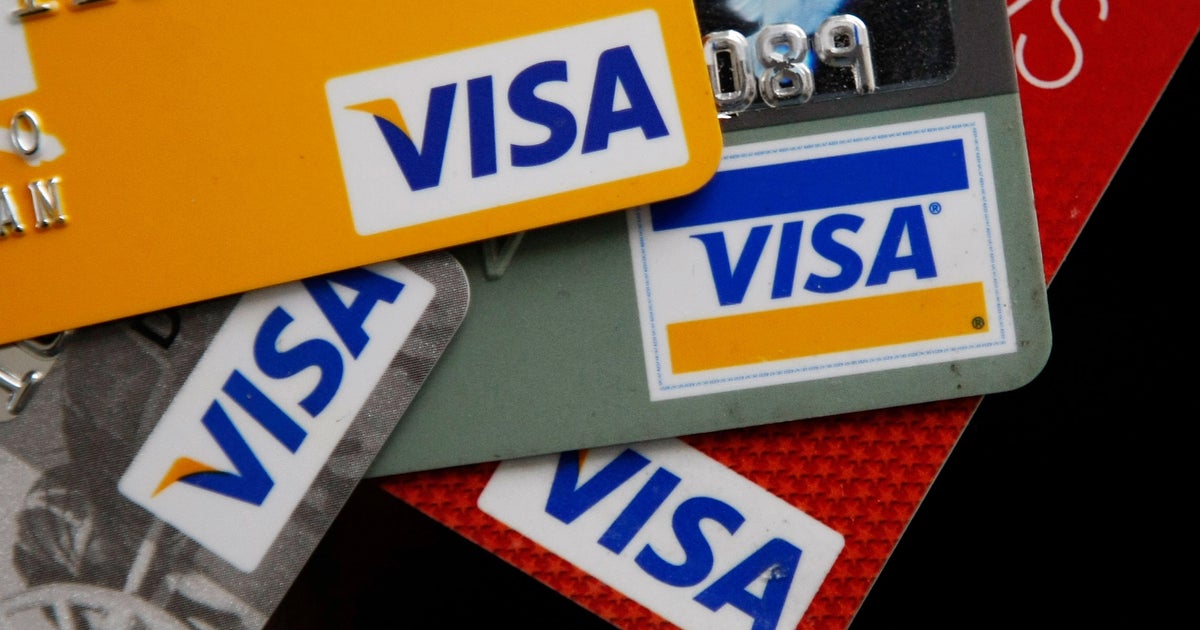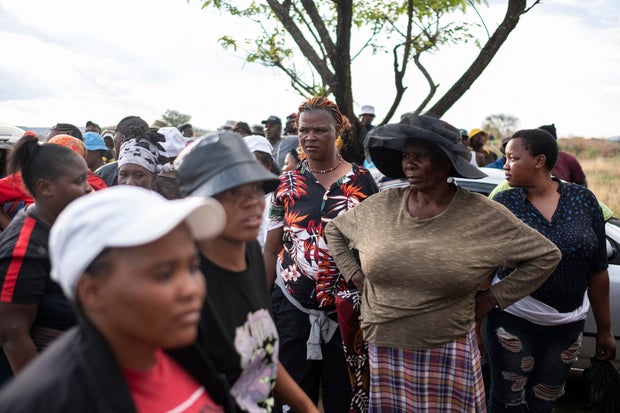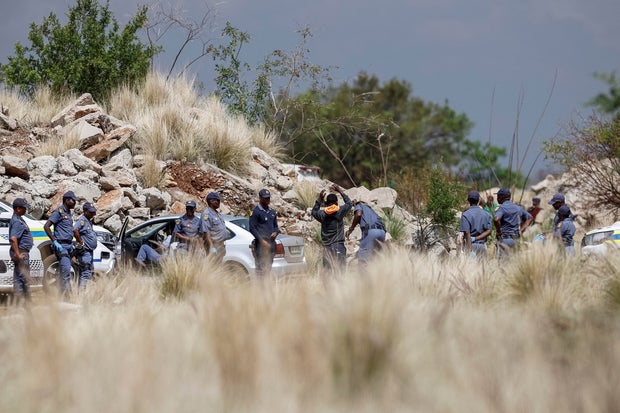CBS News
How to save hundreds of dollars on your credit card payments

When it comes to credit cards and the banks that issue them, bigger is most definitely not better — at least for customers.
That’s because small banks and credit unions typically offer far better credit card terms and interest rates than the largest issuers, the Consumer Financial Protection Bureau said in a new report. In fact, the 25 largest card issuers charged customers interest rates that were eight to 10 percentage points higher than the rates on products from smaller lenders and credit unions, according to the federal agency.
Notably, even for consumers with a strong credit score that can amount to hundreds of dollars in additional interest payments per year, the CFPB said. The median interest rate for people with good credit — a score between 620 and 719 — was 28.20% on cards from from large issuers and 18.15% for small issuers, according to the findings.
For the average cardholder with a balance of $5,000 the difference translates to $400 to $500 in additional annual interest.
“Our analysis found that the largest credit card companies are charging substantially higher interest rates than smaller banks and credit unions,” CFPB Director Rohit Chopra said in statement.
The findings are based on an analysis of 643 credit cards from 156 issuers, including 84 banks and 72 credit unions, offered during the first half of 2023.
Credit card issuers tend to promote rewards programs and sign up bonuses, but bury the actual interest rate and penalty fees, said Adam Rust, director of financial services at the Consumer Federation of America, told CBS MoneyWatch.
“The advice here is to be proactive about calling local banks and credit unions, rather than just responding to an offer that comes in the mail or through your browser, as those are most likely from the large issuers,” he told CBS MoneyWatch.
Mounting financial stress
Large banks don’t only typically charge higher interest rates — they’re also more likely to charge annual fees, the CFPB found. Among large issuers’ credit cards, 27% carried an annual fee, versus 9.5% of small issuers, according to the agency. The yearly fee averaged $157 for the largest issuers, compared with $94 for smaller financial firms.
For Americans, the interest and fees are contributing to what is a growing mountain of debt. Credit card balances stood at $1.13 trillion in the fourth quarter of 2023, up $50 billion, or 4.6%, from the the prior three-month period, according to recent data from the Federal Reserve Bank of New York. More consumers are falling behind on their payments, with 5.4% of credit card debt behind by 90 days or more, up from 4% in the final quarter of 2022.
“Credit card and auto loan transitions into delinquency are still rising above pre-pandemic levels,” Wilbert van der Klaauw, economic research adviser at the New York Fed said in a statement. “This signals increased financial stress, especially among younger and lower-income households.”
Nearly half of credit card users carry a balance from one month to the next, up a full 10 percentage points from 2021, according to Bankrate. Of those who revolve their balances, 58% — 56 million people — have been in debt for at least one year, according to the consumer financial services company.
The National Foundation for Credit Card Counseling offers nonprofit, certified counseling at nfcc.org, and the Federal Trade Commission offers tip for getting out of debt here. America Saves, a non-profit campaign by the Consumer Federation of America, also offers tips and guidance.
CBS News
4,000 miners cut off from supplies in underground standoff over illegal mining in South Africa

Johannesburg — More than 4,000 miners locked in a standoff with South African authorities over illegal mining were believed to be sick and increasingly weak inside an abandoned mine shaft Thursday. South African police confirm the partly decomposed body of one miner had been brought to the surface from inside the Stilfontein mine in the country’s North West province Thursday morning.
Five of the unlicensed miners were pulled out alive Wednesday, all of them appearing frail and weak after apparently being underground for several months.
Illegal miners — known locally as Zama Zama — are often men from neighboring countries who come to South Africa without the paperwork necessary to find legal work. Many say they have no choice but to go underground and work in illegal mines to make a living.
EMMANUEL CROSET/AFP/Getty
South Africa’s abandoned gold mines are often targeted by illegal miners looking for gold and other minerals left behind by the previous commercial operations.
Khumbudzo Ntshavheni, a senior government official who holds the role of Minister in the Presidency, told journalists on Wednesday that authorities would not help the Zama Zamas in the Stilfontein mine, but would instead “smoke them out.”
“We will not send help to criminals. We are not sending help. We will smoke them out. They are not to be helped but persecuted. We didn’t send them there and they didn’t go down there for the good intentions of the country, so we cannot help them,” she said. “When they come out, we will arrest them.”
South African police and military forces leading the operation to detain the illegal miners and shut down the operation — dubbed Vala Umgodi (Close the Hole) — decided this week to block all entrances to the mine to prevent any more food being carried underground. More than 1,000 men have come to the surface and been arrested since the operation began several weeks ago.
EMMANUEL CROSET/AFP/Getty
Those who’ve resurfaced have said they were below ground for several months.
David Van Wyk, a mining analyst and researcher at the Bench-Marks Foundation, said Thursday on a local radio show that he believed Ntshavheni “should read the constitution, and the right to life is sacrosanct, regardless of who you are.”
“People have a right to a fair trial, and you can’t say they are criminal without a fair trial,” said Van Wyk.
Volunteers who have helped bring some of the weakened miners to the surface have also carried up letters up from those still underground. Many have said in the letters that they simply don’t have the strength to come up.
Some of the volunteers have reported a strong smell of rotting flesh underground.
Local community members have been protesting outside the mine, carrying placards reading: “Free our Brothers,” and shouting that family members have been trapped underground for months.
Just outside the mine’s entrance, several woman have been cooking food in large pots to offer to any miners who do come to the surface.
“I am working here, but I am not bothering any human,” said one of the Zama Zama, who wouldn’t give his name but said he was in the mine for several months. “I am just feeding my family.”
CBS News
Jaleel White on his new book, “Growing Up Urkel” and life after “Family Matters”

Watch CBS News
Be the first to know
Get browser notifications for breaking news, live events, and exclusive reporting.
CBS News
Mornings Memory”: Perdue Farms chairman Jim Perdue trades the boardroom for the “trenches

Watch CBS News
Be the first to know
Get browser notifications for breaking news, live events, and exclusive reporting.










